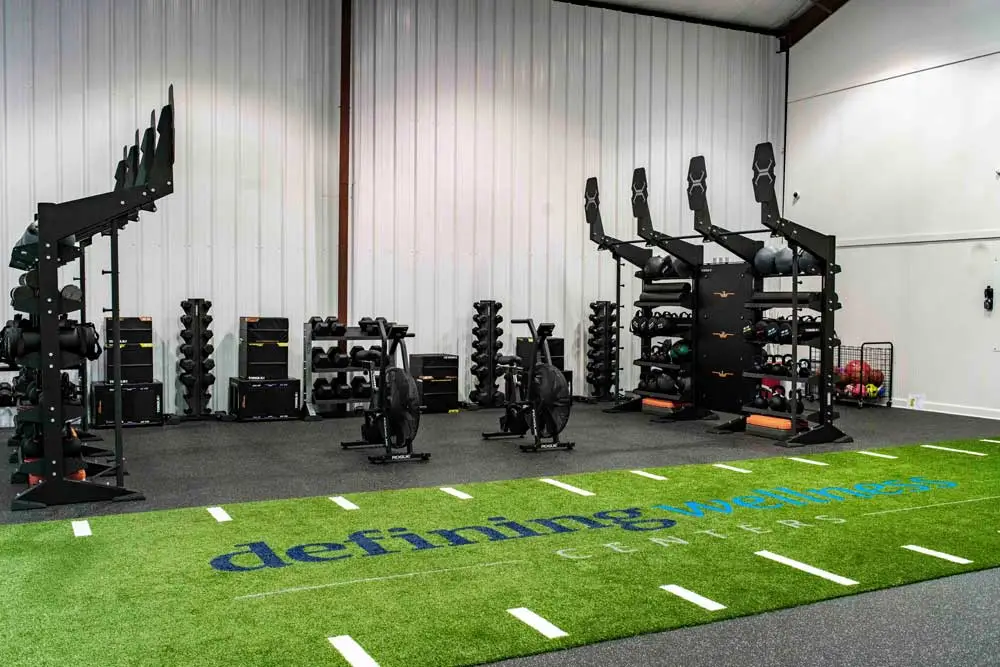Maybe you’ve sensed something isn’t quite right with your loved one for some time. Perhaps you’ve noticed empty liquor bottles around the house. Or you’ve seen their erratic, unpredictable behavior and bouts of drunkenness. Maybe you think they’re anxious or depressed. If any of this sounds familiar, your loved one may be struggling not only with alcohol addiction, but also a co-occurring mental health issues. In this case, it’s important to know the warning signs of alcohol addiction and co-occurring disorders to look for in your loved one, as well as what you can do to help them get the help they need to heal.
Understanding Alcohol Addiction
Just because your loved one drinks alcohol, that doesn’t mean they’re an alcoholic. However, alcohol addiction (also known as alcoholism or alcohol use disorder), is actually a widespread struggle. According to the National Center for Drug Abuse Statistics (NCDAS), about 141,000 Americans die from the effects of alcohol every year. In addition, 1 in 10 Americans over the age of 12 have an alcohol addiction. That means there are about 14.8 million people diagnosed with alcohol use disorder in the US. In other words, if you’re concerned about your loved one’s drinking habits, it’s entirely possible they may have an alcohol addiction.
When you’re an alcoholic, it means you excessively drink to the point where you’re unable to control your alcohol consumption. And if you try to pause or rein in your drinking, you feel unpleasant withdrawal symptoms that drive you to go back to the bottle. Even if your alcohol consumption is causing problems in other areas of your life, you simply can’t stop and will continue to drink. That’s because you’ve become dependent on alcohol to function. But how?
Many people drink because it makes them feel good and relieves stress. Behind the scenes, your brain releases the chemical dopamine when you drink, signaling to you that the experience is pleasurable. But these effects are temporary, so you drink again. And again. Over time however, the pleasurable effects aren’t as strong as you build up a tolerance, so you need to drink in greater quantities and more often. And eventually, you have an alcohol addiction on your hands.
Recognizing the Signs of Alcohol Addiction
If you’ve noticed some concerning drinking habits in your loved one, how can you determine if they need to get help? One of the first things you can do is familiarize yourself with the red flags or warning signs of alcohol addiction. Some of the common alcohol addiction warning signs include:
- Drinking more or longer than intended
- The inability to cut down or stop drinking
- Spending lots of time drinking or recovering from drinking
- Experiencing problems at work or school due to drinking
- The inability to fulfill personal responsibilities at home due to drinking
- Choosing drinking over favorite activities or hobbies
- Being in situations that increased the chance of getting hurt due to drinking
- Needing to drink more to achieve the same effects
- Experiencing withdrawal symptoms in between drinks, such as trouble sleeping, shakiness, nausea, sweating, or dysphoria (feeling uneasy or unhappy)
SOURCE: National Institute on Alcohol Abuse and Alcoholism (NIAAA)
Alcoholism and Co-Occuring Mental Health Issues
If you’ve seen any of the above signs of alcohol addiction in your loved one, then they may be an alcoholic. The more symptoms they have, the more urgent is their need to get help and change their ways. While you may be ready to tell your loved one that it’s time to turn things around, it’s important to know that alcohol addiction isn’t just about behavior modification and self-discipline. There are often deeper issues at hand that can be driving your loved one to drink. They could have co-occurring mental health issues.
The Substance Abuse and Mental Health Services Administration (SAMHSA) defines co-occurring disorders as the coexistence of both a substance use disorder (like alcohol addiction) and a mental health disorder at the same time. Co-occurring disorders are actually more common than you’d think, as about 21.5 million adults in the US have them, according to SAMHSA’s national survey.
Alcohol addiction actually frequently occurs alongside other co-occurring mental health issues, shares the NIAAA. It’s typical to struggle with alcohol use and depression or anxiety and drinking, for example. Some of the main co-occurring mental health issues associated with alcoholism include:
- Anxiety disorders
- Major depressive disorder
- Bipolar disorder
- Post-traumatic stress disorder (PTSD)
- Attention-deficit/hyperactivity disorder (ADHD)
SOURCE: NIAAA
Many addictions, like mental health disorders, are rooted in unresolved past trauma. The lingering effects of trauma — especially childhood trauma — can hurt brain development and emotional regulation skills. This, combined with other factors like genetics, can lead someone to develop a mental health disorder. When you’re struggling with symptoms of a mental health order, it’s easy to seek out ways to self-medicate, such as alcohol and drugs. So your loved one’s alcohol addiction may have been the result of drinking to feel better from underlying mental health issues.
At the same time, chronic heavy drinking can negatively impact the brain over time. Alcohol can actually use up and reduce the number of neurotransmitters in your brain. When this happens, you’re less able to ward off anxiety and depression, shares the Mental Health Foundation. If your loved one has been an alcoholic for some time, they could consequently currently struggle with their mental health, too, as a result.
Dual Diagnosis Symptoms and Treatment
In the professional treatment world, a “dual diagnosis” is the term used when someone has both a substance use disorder and a mental health disorder simultaneously, shares the National Alliance on Mental Illness (NAMI). If you’re worried that your loved one’s alcoholism is part of a larger mental health struggle, then it’s entirely possible they may have a dual diagnosis. After all, substance abuse is twice as prevalent among adults with mental illness, according to Addiction Science & Clinical Practice. But what do dual diagnosis symptoms actually look like? Here are some key examples:
- Difficulty keeping a job
- Relationship troubles
- Financial or legal instability
- Difficulty focusing
- Confusion
- Mood swings and unexpected behavior changes
- Impulsive or risky behavior
- Suicidal thoughts
- Social withdrawal and isolation
- Intense substance cravings
- Using substances despite their negative effects
- Increased tolerance for substances
- Experiencing withdrawal symptoms when you stop using a substance
When your loved one has a standalone addiction or mental health disorder, it’s important to seek professional treatment in order to heal. And when your loved one has a dual diagnosis of co-occurring disorders, it’s all the more important to seek professional treatment. However, your loved one needs to partner with a comprehensive treatment facility that specializes in rehab for dual diagnosis. That means they have the capabilities, resources, and expertise to address both disorders at the same time.
Otherwise, if your loved one only focuses on treating their addiction first, their mental health disorder will get worse, and vice versa. And sadly, any progress made with the treated disorder often gets negated by the worsening untreated disorder. A dual diagnosis treatment center is always the right decision for both addiction and co-occurring mental health issues.
When to Seek Help
If you’re seeing any dual diagnosis symptoms in your loved one, what should you do next? How do you know when to seek help? When it comes to the presence of addiction and co-occurring mental health issues, the answer for when to seek help is now. The idea of talking to your loved one about their struggles may feel scary or daunting, and that’s certainly understandable. But if you choose to wait and hope that they figure things out on their own, their struggles will only get worse.
Unfortunately, co-occurring disorders can feed off of each other. Alcohol, though providing temporary relief initially, can actually increase the severity of mental health disorders like anxiety or depression when consumed in larger amounts over time. And alternatively, untreated mental health disorders can drive your loved one to go to the bottle again and again, further entrenching addiction.
With that said, now is the time to help your loved one get the treatment they need to heal. And your support along the way can actually make a major impact in your loved one’s successful long-term recovery. If you want your loved one to finally get healthy and reclaim their life, it’s best to talk to them right away about seeking the help they need. And if you’re unsure how to do that well, reach out to a treatment center for additional resources and advice. Many facilities also offer family programs to support people like you with loved ones in treatment.
Rehab for Dual Diagnosis at Defining Wellness Centers
If your loved one’s alcohol addiction is indeed part of a larger mental health struggle, our comprehensive dual diagnosis treatment program at Defining Wellness Centers can help them find lasting healing. Our team takes a holistic assessment of your loved one’s situation, including a thorough mental health evaluation. This allows us to personalize our treatment to their unique needs so they can achieve the best outcomes. Evidence-based, holistic, and trauma-informed, our treatment programs partner with your loved one throughout their recovery journey, from detox and inpatient treatment to aftercare and beyond. To learn more, contact our team today at (855) 790-9303.









